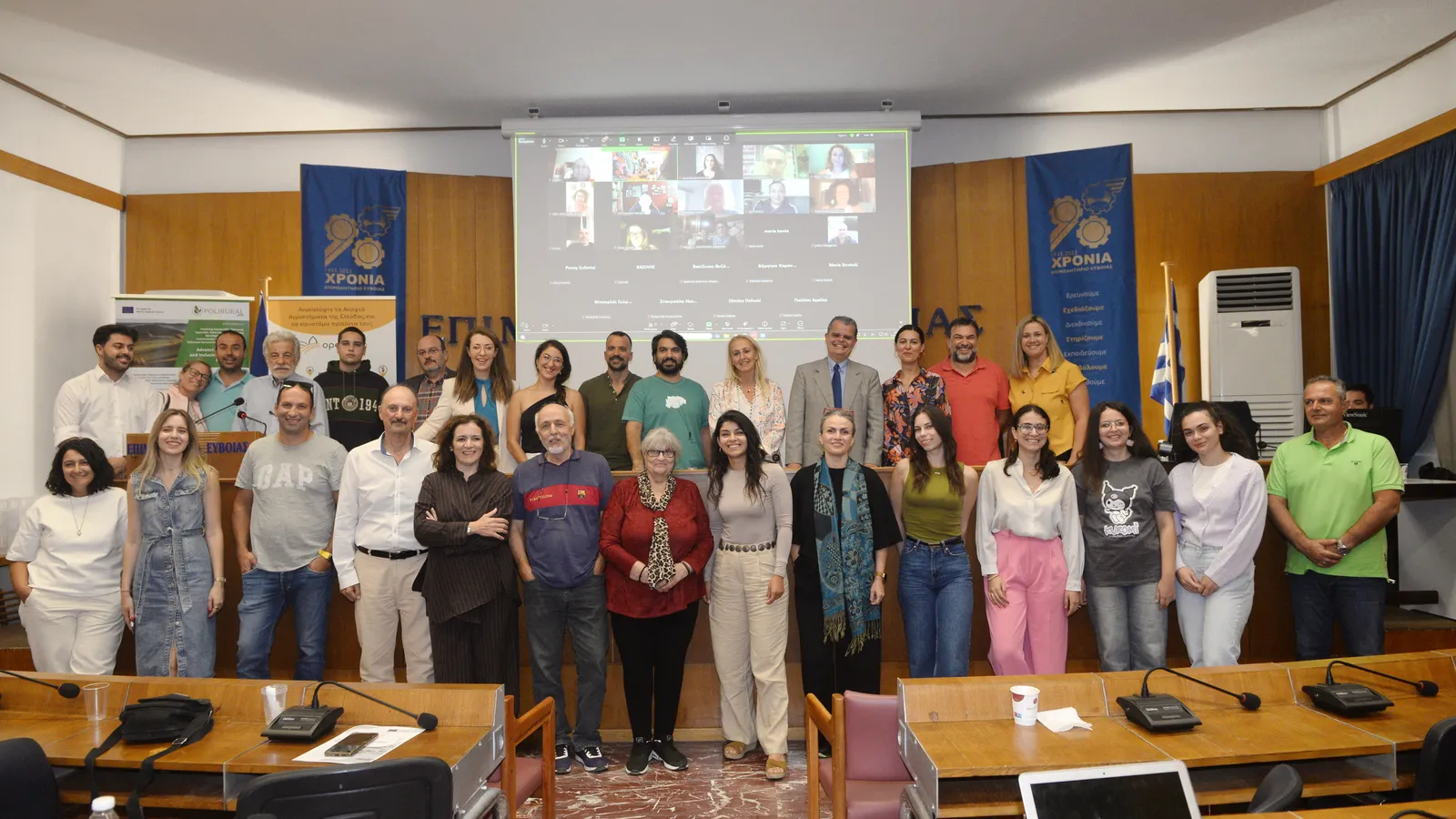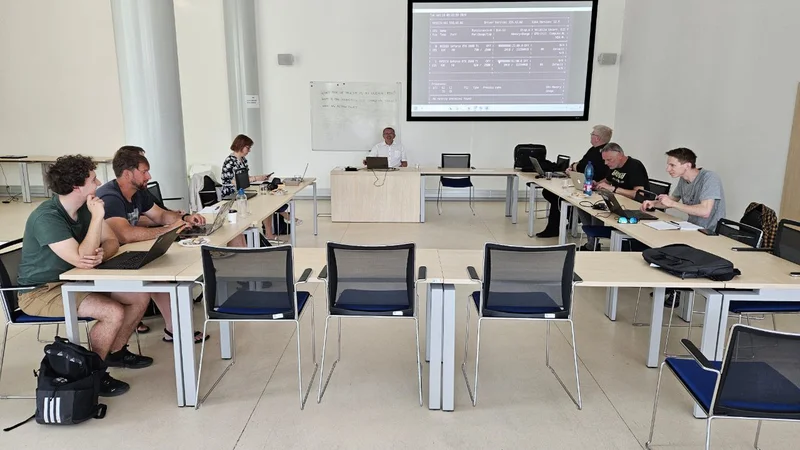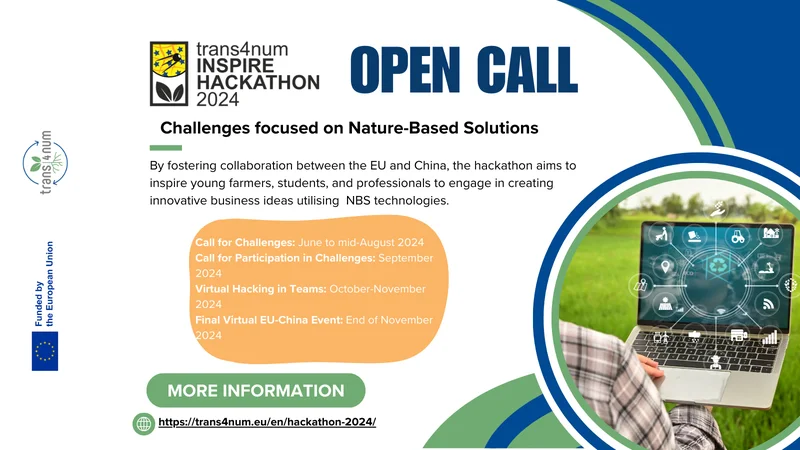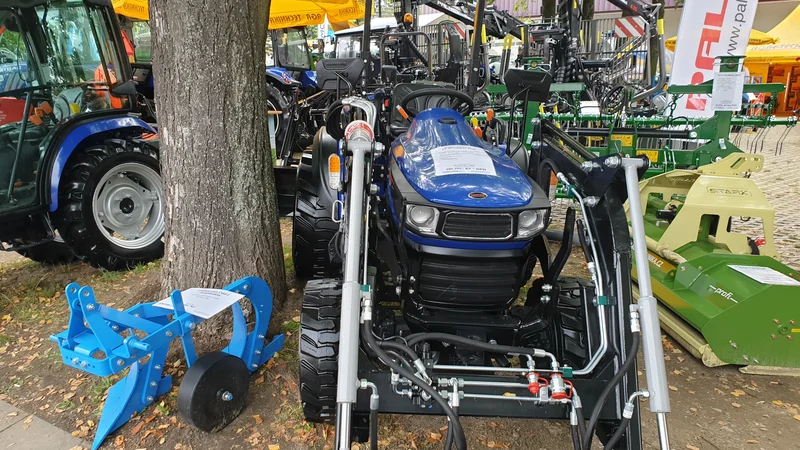The Smart Agritourism Challenge, held in Chalkida on 27–28 September 2025, brought together farmers, tourism professionals, researchers, and entrepreneurs to rethink how agritourism can become a driver of sustainable regional development.
Organised by Open Farm under the auspices of the Region of Central Greece and the Chamber of Evia, the event was part of the PoliRuralPlus – Central Greece Pilot, which focuses on connecting agrifood and tourism through smart, data-driven solutions.
The two-day workshop was designed as an interactive journey — from idea generation to practical application, divided into Part A: Ideation & Collaboration and Part B: Reflection & Integration of PoliRuralPlus Tools.
Part A — Ideation & Collaboration
The first day set the tone for creativity and cross-sector dialogue.
Participants were welcomed by representatives of the Region of Central Greece and the Chamber of Evia, who underlined the importance of linking innovation and entrepreneurship with local rural identity.
The session opened with short presentations offering both academic and market perspectives:
Dr. Sofia Karabela (Assistant Professor, Aristotle University of Thessaloniki) shared key trends in agritourism and rural experience design; Ms. Maria Emmanouilidou (Agricultural Economist) analysed the current state of the Greek agritourism sector; and Ms. Gogo Passa (beekeeper, co-founder of “Famelaki”) showcased a hands-on example of how small local producers collaborate to create authentic visitor experiences.
The discussion was moderated by Ms. Vaso Kanaki from Open Farm (Coordinator, Open Farm Days). Mr. George Pilpilidis (CEO, Kleesto) introduced digital tools that enhance rural tourism through automation and improved customer experience, paving the way for a lively panel discussion titled
The first day concluded with the panel “Tourism and Technology: Redefining the Experience”, moderated by Mr. Panagiotis Papadopoulos (Head and Co-Founder, Open Farm), featuring Mr. Tasos Kannavos (co-founder & CEO, Cellarhopping), Ms. Hara Magkana (beekeeper, co-founder of Bee Naturalles), and Mr. George Papathanasopoulos (FIJET representative in Greece).
Panelists discussed practical examples of collaboration between producers and tourism enterprises, the role of digital platforms, and how data can enhance storytelling and visitor engagement.
Part B — Reflection & Integration of PoliRuralPlus Tools
The second day focused on translating creative ideas into realistic models for implementation.
Ms. Chrisa Boza (Counselor & Group Facilitator, NDI) led a hands-on session on team dynamics, shared values, and the mindset needed for effective collaboration — helping participants strengthen communication and trust within their teams.
Next, Ms. Magda Peistikou (Editor-in-Chief, Food Service Magazine) guided participants through the principles of purpose-driven entrepreneurship — encouraging them to align their projects with sustainability goals, local identity, and viable business practices.
A highlight of Part B was the session by Ms. Penny Zafyraki from the Agricultural University of Athens, who introduced the digital toolkit developed within PoliRuralPlus. Participants explored how the project’s semantic data models, AI mapping tools, and text-mining functionalities can be used to analyse tourism potential, identify collaboration networks, and integrate evidence-based decision-making into their business concepts.
Through this session, the teams gained a clearer understanding of how data and AI can support the growth of local agritourism ecosystems, moving from intuition-based planning to insight-driven innovation.
Following these inputs, teams were formed to work around common interests such as hospitality and local gastronomy, digital experience design, and education in nature.
Using an idea canvas, participants defined the problem or opportunity they wanted to address, drafted their initial concept, identified target audiences and potential partnerships, and explored how technology could add value.
From Ideas to Impact
By the end of the weekend, seven teams, four participating online and three in person, had developed structured proposals for new agritourism experiences.
Each team presented a short pitch before experts from academia and the market, receiving feedback on clarity, feasibility, and innovation potential.
Two winning teams were selected for further mentoring and pilot development within the next phase of the Central Greece Pilot.
All participants received local Evia products as a symbolic gesture, celebrating the connection between agritourism innovation and the island’s rich agrifood tradition.
What’s Next
The Smart Agritourism Challenge demonstrated how local creativity, regional partnerships, and EU-level tools can jointly drive rural transformation.
In the coming months, the winning teams will refine their ideas through targeted mentoring and explore pilot implementation opportunities with support from Open Farm.
The event marked a significant step in the Central Greece Pilot’s journey, showing how data, AI, and community collaboration can co-create sustainable tourism pathways for the future.




Existing Comments